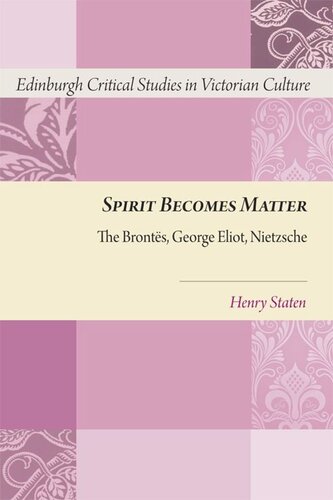

Most ebook files are in PDF format, so you can easily read them using various software such as Foxit Reader or directly on the Google Chrome browser.
Some ebook files are released by publishers in other formats such as .awz, .mobi, .epub, .fb2, etc. You may need to install specific software to read these formats on mobile/PC, such as Calibre.
Please read the tutorial at this link: https://ebookbell.com/faq
We offer FREE conversion to the popular formats you request; however, this may take some time. Therefore, right after payment, please email us, and we will try to provide the service as quickly as possible.
For some exceptional file formats or broken links (if any), please refrain from opening any disputes. Instead, email us first, and we will try to assist within a maximum of 6 hours.
EbookBell Team

4.3
28 reviewsThis book explains how, under the influence of the new 'mental materialism' that held sway in mid-Victorian scientific and medical thought, the Brontës and George Eliot in their greatest novels broached a radical new form of novelistic moral psychology. This was one no longer bound by the idealizing presuppositions of traditional Christian moral ideology, and, as Henry Staten argues, is closely related to Nietzsche’s physiological theory of will to power (itself directly influenced by Herbert Spencer). On this reading, Staten suggests, the Brontës and George Eliot participate, with Flaubert, Baudelaire, and Nietzsche, in the beginnings of the modernist turn toward a strictly naturalistic moral psychology, one that is 'non-moral' or 'post-moral'.M/p>